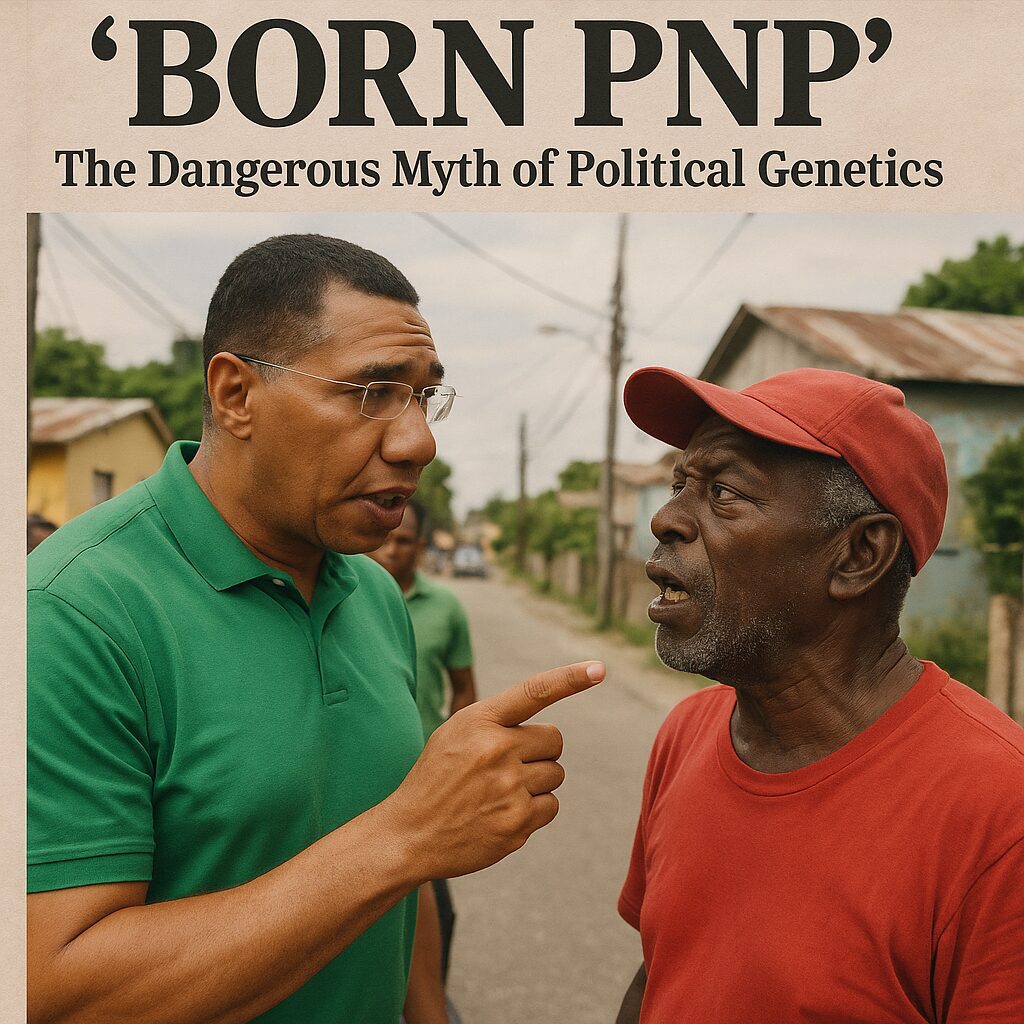“Born PNP”: The Dangerous Myth of Political Genetics
During a recent campaign stop, Prime Minister Andrew Holness engaged in a telling exchange with a man from Mount Salem.
Holness greeted the man warmly, and though the man admitted he was not a Labourite, he showed respect to the Prime Minister. When asked why he supported the People’s National Party (PNP), his answer was simple: “It just run in my blood.”

The Prime Minister pressed further—was there any particular reason? The man insisted, “This is how I was born and grown. It just run inna mi blood.”
Holness appeared taken aback, seeking to clarify, but the man doubled down. Despite acknowledging that his community of Mount Salem had seen improvements under the Jamaica Labour Party—most notably a reduction in crime—he still pledged loyalty to the PNP, purely on the grounds of inherited political identity.
This encounter echoes sentiments expressed by Dr. Alfred Dawes, who recently described South East St. Catherine as “organically PNP.”
And therein lies one of Jamaica’s deepest political wounds. Too many Jamaicans are prepared to sacrifice progress, peace, and prosperity in the name of party loyalty. Too many are willing to cling to poverty, crime, and underdevelopment, simply because they believe their political allegiance is written into their DNA.
Since independence, this dangerous notion of “political genetics” has shackled Jamaica’s democracy. Communities declare themselves PNP country or Labourite country—not because of policy, vision, or results, but because of inherited political tribalism.
If Jamaicans continue to vote by bloodline instead of by reason, the nation risks remaining trapped in cycles of underdevelopment. True democracy demands choice, accountability, and a willingness to break free from the chains of inherited politics.
